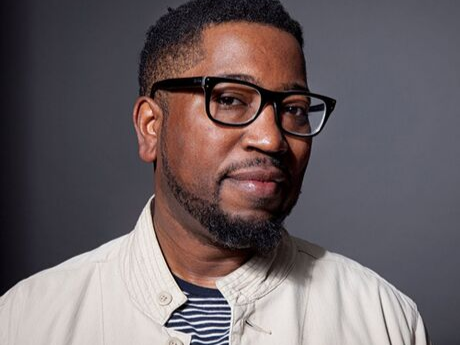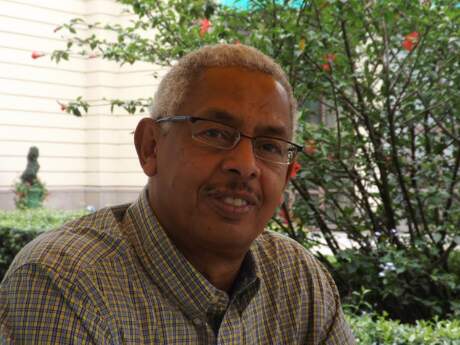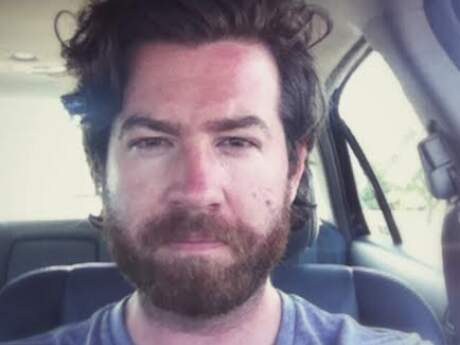New American Poets
New American Poets: Major Jackson

How to Listen
I am going to cock my head tonight like a dog
in front of McGlinchey's tavern on Locust:
I am going to stand beside the man who works all day combing
his thatch of gray hair corkscrewed in every direction.
I am going to pay attention to our lives
unravelling between the forks of his fine-toothed comb.
For once, we won't talk about the end of the world
or Vietnam or his exquisite paper shoes.
For once, I am going to ignore the profanity and
the dancing and the jukebox so I can hear his head crackle
beneath the sky's stretch of faint stars.
"How To Listen" by Major Jackson. All Rights Reserved. Reprinted with the permission of the author.
When did you set your foot on the path of poetry? Did you feel a sudden bolt? Or did you grow gradually more passionate about poetry?
Encountering poetry at the nascent and impressionable age of eleven, the year I launched into all of my brooding, was the result of pillaging my grandparent's second floor library. Among that Golconda of books stacked floor to ceiling, I picked up a Robert Frost paperback edited by Louis Untermeyer and turned to a little ditty: "Nothing Gold Can Stay." I still have its rhythm in my head. Langston Hughes I dug up next, and then an anthology edited by Mark Strand, Contemporary American Poetry, with that cool Jasper Johns flag on the cover. Reading poetry back then was a private pleasure. I carried a few of those books with me for their intimacy. At that adolescent hour, I needed their companionship.
Is there a collaborative element to your writing process and what do you think it is?
Writing poetry is collaborative for me in that often in my work I consciously respond to life happenings, present ideologies, and concerns rightly identified by critics as related to urban decay and regeneration, but when I compose I am most aware of that palimpsest of writings we have inherited over the millennia. I am fed and led by this continuing and illustrious conversation.
My sense of what is possible in poetry, what can be done with language, grows daily and normally through exposure, that is, wide reading. I am embarrassed to name all of my touchstones; you'd think me a bona fide thief. Right now, I am re-reading Auden's "Letter to Byron." What power and play! I haven't achieved his brand of comfort with the conversational mode. So afraid I am of not making music and lapsing into prose rhythms.
Are there aspects of other arts that you've put to use in your work?
I first began to feed off poetry's sister arts and cousins while working at the Painted Bride Art Center in Philadelphia, which featured nightly the wide family of living and breathing artists in performance art, avart-garde jazz and New Music, dance, etc. As an intern, I catwalked, hung lights, miked the stage, threw around monitors for the likes of Diamanda Galas, Karen Finley, David Murray, Harryette Mullen & Ted Pearson, Philadanco. We had a fantastic Dada Fest, and Philadelphia would eventually develop its own Fringe Festival.
What was positively persuasive about the artists that came through the Bride was their willingness to experiment, to worry the precincts of expression, form, structure and time. But as classical as this may sound, my work gains power and seeks to develop from the groundwork and collective value we have imbued in the vessel of poetry, in the tradition.
Are you interested in the relationship between poetry and politics?
I have a fear of willful rhetoric overwhelming the poems I write, and I know a delicate balance must be struck when any writer attempts to confront reality, the here and now. A poet must also avoid self-righteousness, which distracts from the poem. But the dichotomy of politics and poetry is an illusion, and the lives of many American poets tell us this: Muriel Rukeyser, Sonia Sanchez, Adrienne Rich, Amiri Baraka. Language is political and implicates human consciousness.


